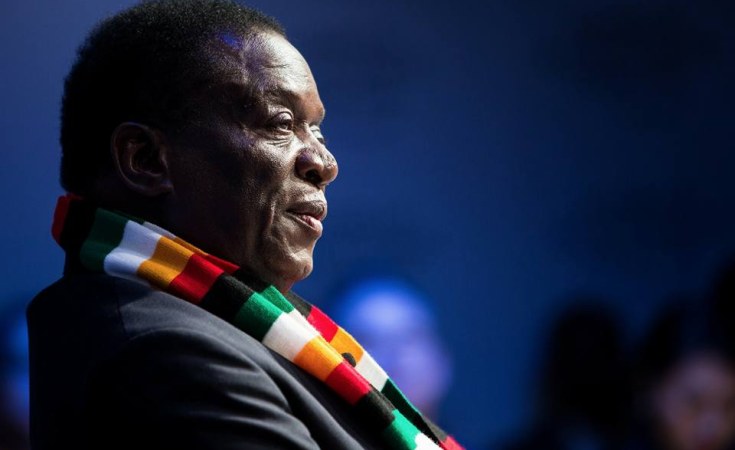Harare, Zimbabwe — There are mixed feelings among Zimbabwe's political class after the U.S. removed sanctions against many Zimbabweans and companies on Monday but imposed new ones on President Emmerson Mnangagwa and a few senior leaders.
The sanctions list was introduced in 2001 for alleged election rigging and human rights abuses. At the same time, Washington imposed fresh sanctions on Mnangagwa and other senior leaders, condemning what it called a campaign of rights abuses and corruption in the southern African nation.
On social media, Zimbabwe government spokesman Nick Mangwana praised the removals, calling it a "great vindication" of Mnangagwa's foreign policy.
But, he said, since Mnangagwa and some companies remain under sanctions, all of Zimbabwe "remains under illegal sanctions."
But Rutendo Matinyarare, chairman of Zimbabwe Anti-Sanctions Movement -- an organization that has been leading calls for sanctions removal -- posted a video hailing the changes.
"This is very important," he said. "The government of Zimbabwe can go and borrow money, Zimbabwean businesses can borrow money, they can buy machinery, they can make payment clearances. We are happy, the most pertinent, the most evil of these sanctions are removed."
He said there is still work to do, however.
"Now what are we going to do about the sanctions on the president, a number of businesspeople and some ministers?" he said. "We will say and urge the president of the country plus the businessmen there that join us and we will undertake legal action to have these said sanctions removed. We have proved that legal pressure works, and it has worked better than re-engagement because if re-engagement [worked], our president, our vice president and members of our government wouldn't be under sanctions."
Zimbabwe's government blames sanctions for the struggle of the country's economy since their imposition in the early 2000s.
But critics attribute the decline to corruption and bad policies by Harare.
Lloyd Damba, spokesman for the opposition Movement for Democratic Change, said removal of most sanctions will expose the shortcomings of the ruling ZANU-PF party.
"It is a good thing that these sanctions have been removed, and now we want to see how the economy is going to perform," he said. "Because you know that these people are corrupt, we know that these people are not competent. We know that these people will never abandon the way of doing things, especially when it comes to looting and stealing. Those things that [have] nothing to do with sanctions."
Tafadzwa Manenji, an independent international relations commentator based in Harare, argues that keeping the president under sanctions will affect the whole country.
"Those people on the list are the government, so you cannot sanction individuals who are in charge and ... say the rest must not be affected by those sanctions," he said.
In announcing changes to the sanctions regime Monday, President Joe Biden also terminated the official U.S. state of emergency regarding actions and policies of the Zimbabwe government, first imposed in 2003.


